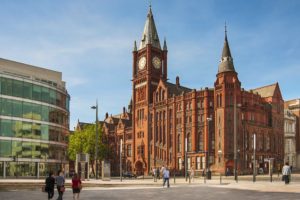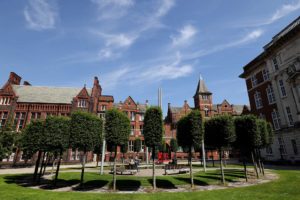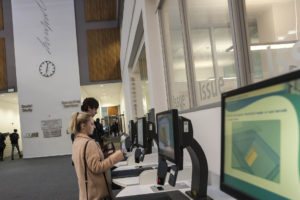Fees and funding
Your tuition fees, funding your studies, and other costs to consider.
Tuition fees
UK fees (applies to Channel Islands, Isle of Man and Republic of Ireland)
Full-time place, per year - £9,790
Year abroad fee - £1,385 (applies to year in China)
International fees
Full-time place, per year - £32,000
Year abroad fee - £16,000 (applies to year in China)
The UK and international full-time fees shown are for the academic year 2026/27 (UK fees are subject to Parliamentary approval). UK year abroad and year in industry fees and international year in industry fees shown are for entry 2025, as 2026/27 fees have yet to be confirmed. Please be advised that tuition fees may increase each year for both UK and international students. For UK students, this will be subject to the government’s regulated fee limits.
Tuition fees cover the cost of your teaching and assessment, operating facilities such as libraries, IT equipment, and access to academic and personal support. Learn more about paying for your studies.
Additional costs
We understand that budgeting for your time at university is important, and we want to make sure you understand any course-related costs that are not covered by your tuition fee. This includes the costs associated with placements or internships, and the optional field course in Uganda.
Students should expect to cover the following costs.
Costs associated with placements/internships
Students in Biosciences who have chosen international placements/internships will need to pay for their visa (if applicable), travel, accommodation, and meals.
There may also be costs associated with travel to interviews for placements/internships. These will vary, and some other extra costs may also be incurred. If students are spending a full year in industry, their employers may pay transport costs. School and University bursaries may be available to help with the cost of these opportunities.
Students might choose to pay for additional optional vaccinations in addition to the compulsory ones that the School pays for.
Tropical ecology field course
Students who elect to take the optional tropical ecology field course in Uganda are required to make a financial contribution that covers their own costs (travel, meals, visa, accommodation, and entry to national parks). In 2020-21, the student contribution was £1,500. A limited number of funded places are available.
Students might choose to pay for additional optional vaccinations in addition to the compulsory ones that the School pays for.
Find out more about additional study costs.








